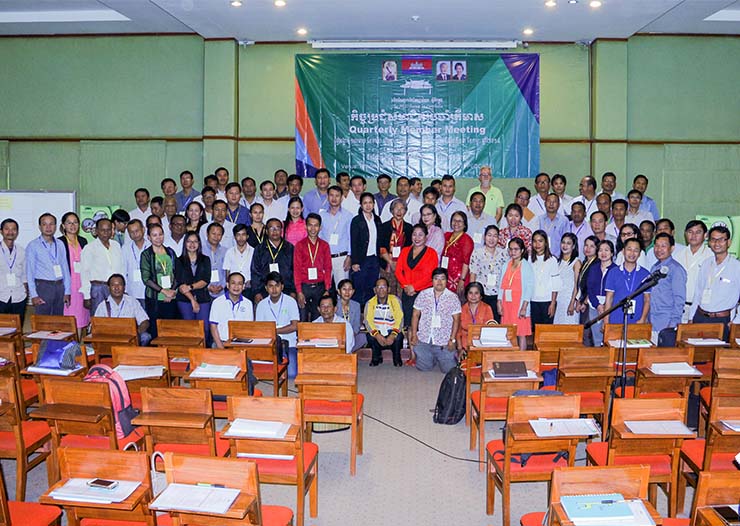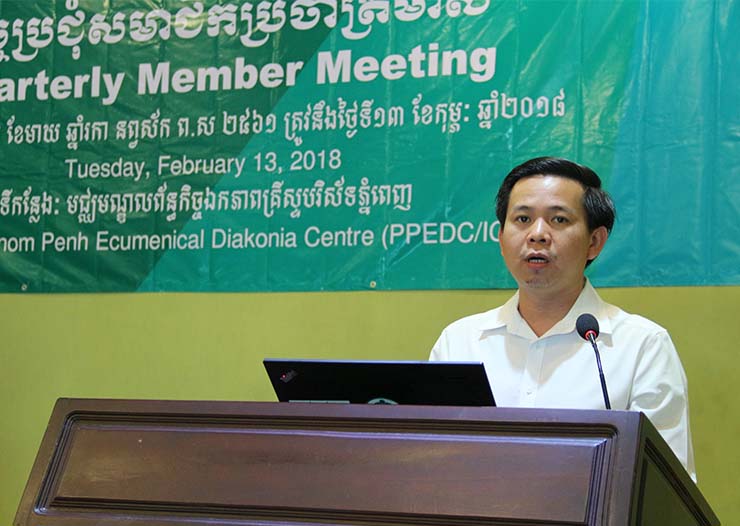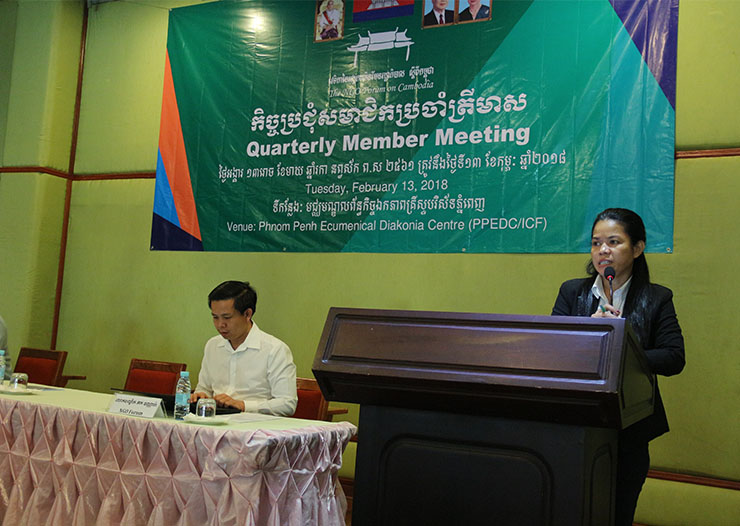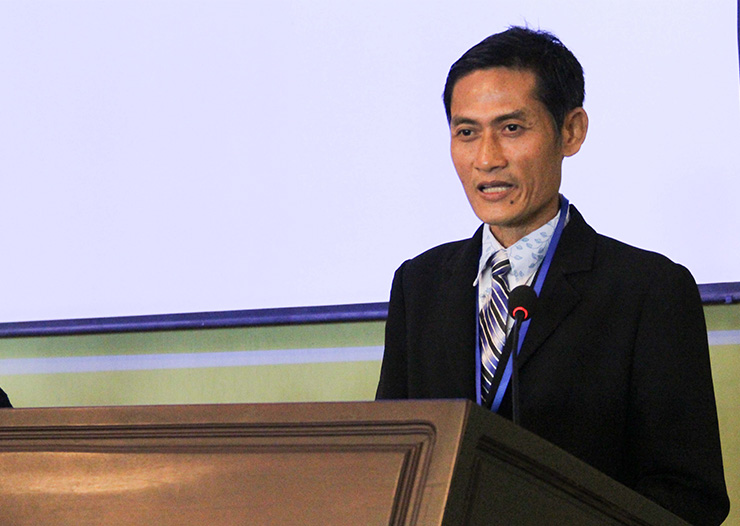
The NGO Forum (NGOF) on Cambodia’s quarterly member meeting was held on February 13, 2018 at Phnom Penh Ecumenical Diakonia Centre (PPEDC/ICF). There were 129 participants (female 37) represented to NGO members of NGOF in Cambodia. There were 3 main objectives shared and discussed which were: 1. Updated on Significant Progress Report of the NGO FORUM in the last quarter (Dec 2017-Feb 2018). 2. Updated on the draft law of food safety and election of management committee member of the NGO FORUM on Cambodia; and 3. Updated and Debated on Indigenous People in Cambodia.

Dr. Tek Vannara, NGOF’s executive director updated the quarterly progresses of NGOF to participants as followings (1) civil society’s concerns on hydropower construction had been accepted by the Mekong River Commission, (2) civil society’s concerns on forced evictions, human rights issues, and land disputes were accepted for discussion at the first commission of the National Assembly of Cambodia, (3) the NGOF represented civil society at the quarterly technical working group meeting organized by the Ministry of Economy and Finance, (4) the civil society groups were facilitated to discuss and comment on the draft code of environmental impact assessment, (5) all stakeholders agreed to continue addressing the remaining issues of Lower Sesan Dam, (6) facilitate the bi-monthly meeting of eight networks to discuss on some challenges and develop advocacy strategies, (8) submitting to the ASEAN summit to demand for supporting to the smallholder farmers, (9) the NGOF, representing its members, attended weekly meeting with embassies to discuss on Cambodian challenges, (10) facilitated civil society organizations to have quarterly meeting with Ministry of Land Management, Urban Planning and Construction, and (11) the issues of indigenous peoples’ rights, land disputes, and other traditional practices had been discussed with the Ministry of Rural Development.

Mrs. Luy Rasmey, chair of meeting, management committee member of the NGOF on Cambodia, executive director of CEPA updated about the progress of NGOF on CSO’s inputs to the draft environment and natural resources code, the delay of the draft on agriculture land law (delayed by the government) and CSO’s inputs on fishery law amendment, the increasing of RGC’s budget allocation according to the priority sectors suggested by CSOs, the government agreed that residents living in the Sesan 2 dam would continue to live normally, finalization of NGOF 6 years strategic plan, 3 years action plan, and operational plan.
Mr. Hak Piseth, Deputy Director Agro–Industry Department, Ministry of Agriculture, Fisheries and Forestry presented on the updating on the drafting of the law. He concerned on farmers still had little knowledge about the impact of the use of agricultural pesticides on agricultural products. Manufacturers and sellers did not take into account the health of consumers because they used a substance that maintains color and quality, which affects long-term health. These were reasons of drafting the law. In this law required high quality producers to ensure the quality of good products did not affect health. This law was conducted in accordance with the policy of producing rice and exporting milled rice with technical support from USAID experts. The draft law would provide consultations with agricultural producers and other stakeholders in the near future.

Mr. Ly Van Then, Deputy Chief of Indigenous office, Ministry of Culture and Fine Art, presented that there are 23 Indigenous Peoples (IP) in Cambodia living almost everywhere in Kratie, Steung Treng, Ratanakiri, Kampong Speu, and Preah Vihear. The Ministry had set up a place, found human resources with skilled, social skills to create jobs for them, such as catapults and creating eco-tourism sites. As Tampuans IP community had prepared the home of the bride and the groom at Yeak Laom Lake to attracts tourism. They also had different home styles. In addition, they had indigenous musical instruments and indigenous music which attracted tourists. Individual IP community may lose their traditional costumes in the future, and the Ministry of Culture and Fine Arts had been preparing for the future of promoting indigenous cultures and identities.
At the closing of the meeting, Mrs. Luy Rasmey thanked the honorable guest speakers and participants for sharing the knowledge and experience related to the topics proposed at the meeting responding to objectives and expected results. The NGO Forum on Cambodia would continue to work with the Ministry of Agriculture, Forestry and Fisheries to draft a Law on Quality and Safety of Agricultural Products. In addition, we would continue to work with the Ministry of Rural Development to protect land and natural resources for Indigenous Peoples.